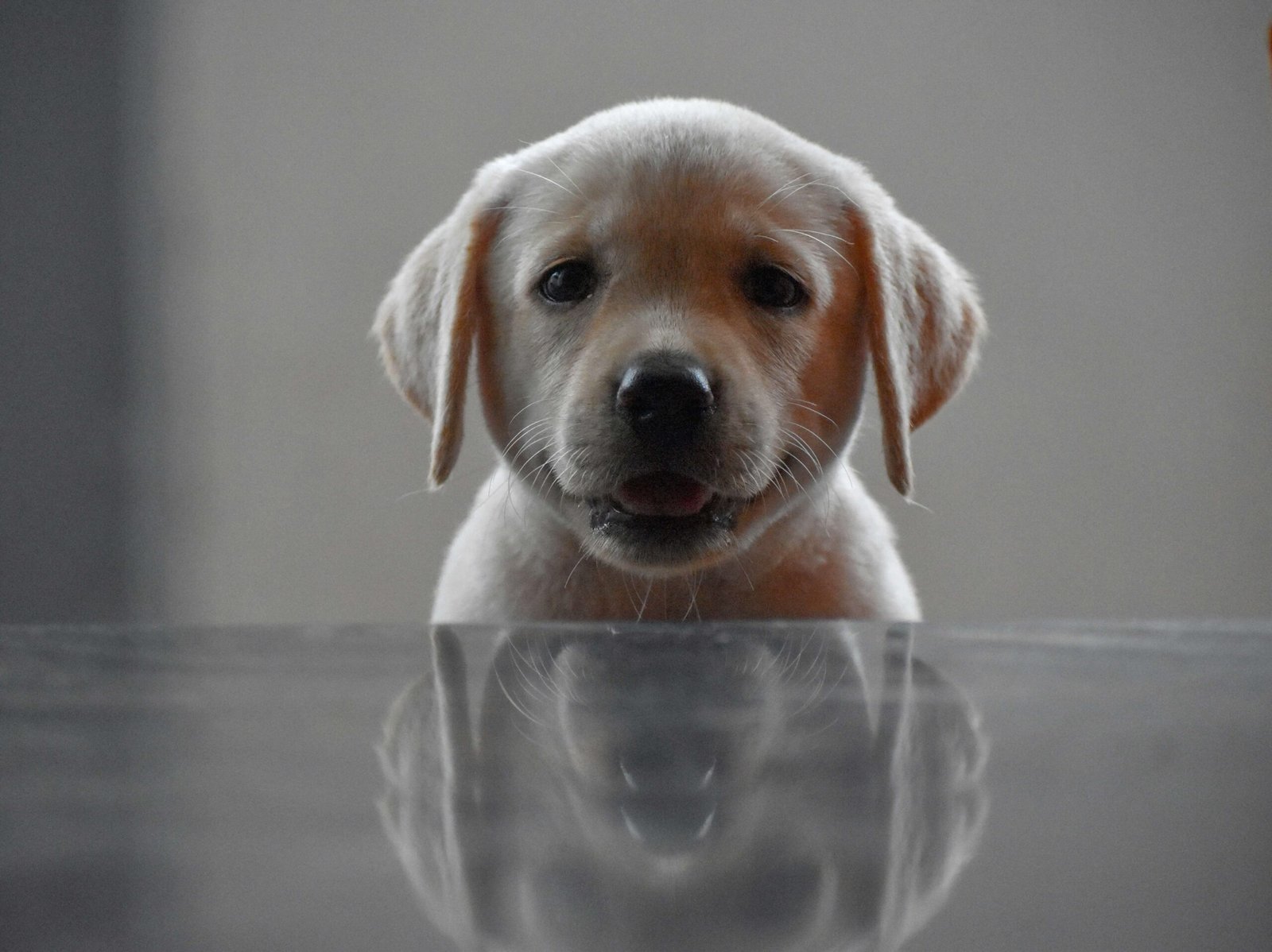My Dog Ate Coffee Grounds – What You Need to Know
As a pet owner, few things are as alarming as realizing your furry friend has gotten into something they shouldn’t have. One morning, I walked into the kitchen only to find my curious pup happily munching on leftover coffee grounds from the trash. Panic set in immediately. Was this dangerous? Could it harm him? If you’ve found yourself in a similar situation, you’re not alone. Dogs are notorious for their curiosity, and sometimes that leads them straight to things that aren’t good for them. In this blog post, we’ll explore what happens when your dog eats coffee grounds, how to respond, and how to prevent it from happening again.
Why Coffee Grounds Are Dangerous for Dogs
Coffee grounds may seem harmless at first glance, but they contain caffeine, which can be toxic to dogs. Here’s what you need to know about why coffee grounds pose a risk to your furry companion:
Caffeine is a stimulant that affects the central nervous system.
Dogs metabolize caffeine much slower than humans, meaning its effects last longer in their bodies.
Even small amounts of caffeine can lead to symptoms like restlessness, rapid breathing, or an elevated heart rate.
Larger quantities may result in more severe reactions such as seizures or even death in extreme cases.
Coffee grounds also contain oils and acids that could upset your dog’s stomach.
Understanding these risks is the first step in protecting your pet. If your dog has consumed coffee grounds, acting quickly is essential to ensure their safety.
Signs Your Dog May Be Affected by Coffee Grounds
If you suspect your dog has eaten coffee grounds, keep an eye out for any unusual behavior or symptoms. Here are some common signs that your dog may be experiencing caffeine toxicity:
Restlessness or hyperactivity that seems out of character.
Vomiting or diarrhea due to gastrointestinal irritation.
Rapid breathing or panting without physical exertion.
Increased heart rate or palpitations noticeable during petting.
Tremors or muscle twitching that indicate nervous system involvement.
These symptoms can vary depending on the amount of coffee grounds ingested and your dog’s size. If you notice any of these signs, it’s crucial to seek veterinary advice promptly. Early intervention can make all the difference in ensuring your dog’s recovery.
Check this guide 👉My Dog Ate Edamame Shells: Best 7 Expert Tips!
Check this guide 👉My Dog Ate a Sock: Best 7 Health Tips!
Check this guide 👉My Dog Ate Weed: Best 7 Expert Tips!

Symptoms to Watch For | Steps to Take Immediately |
|---|---|
Restlessness or hyperactivity | Remove any remaining coffee grounds |
Vomiting or diarrhea | Keep your dog calm and monitor closely |
Rapid breathing | Contact your veterinarian right away |
Increased heart rate | Avoid giving water until advised |
Tremors or seizures | Note how much was consumed (estimate) |
How to Prevent This From Happening Again
Prevention is always better than dealing with a potential emergency. To avoid future incidents involving coffee grounds or other harmful substances, consider implementing these strategies:
Store coffee grounds securely in sealed containers out of reach.
Dispose of used grounds in covered trash bins your dog cannot access.
Train your dog to follow commands like “leave it” or “drop it.”
Supervise your pet closely, especially in areas where food or drinks are prepared.
Use baby-proof locks on cabinets or drawers containing hazardous items.
By taking these precautions, you can create a safer environment for your dog and reduce the likelihood of accidental ingestion.
Safe Alternatives to Coffee Grounds Around Pets
If you love coffee but want to keep your home safe for your furry friends, here are some alternatives to traditional coffee grounds:
Switch to decaffeinated coffee options that pose less risk if accidentally ingested.
Use biodegradable coffee pods designed to minimize waste and exposure.
Compost coffee grounds in a secure outdoor bin instead of indoor trash cans.
Opt for flavored teas or herbal infusions that don’t contain caffeine.
Explore caffeine-free beverages like hot chocolate made specifically for pets.
These alternatives allow you to enjoy your favorite rituals while keeping your four-legged family members safe and healthy.
Understanding the Role of Caffeine in Coffee Grounds
Caffeine is the primary culprit behind the dangers of coffee grounds for dogs. While it’s a beloved pick-me-up for humans, caffeine can wreak havoc on a dog’s system. Here are some key facts about caffeine and its effects:
Caffeine stimulates the central nervous system, leading to overexcitement in dogs.
It can cause an imbalance in electrolytes, affecting muscle function and hydration levels.
Dogs lack the enzymes needed to break down caffeine efficiently, prolonging its effects.
The toxicity threshold varies based on breed, size, and overall health of the dog.
Even small exposures should not be ignored, as cumulative effects can occur over time.
Understanding how caffeine impacts dogs underscores the importance of keeping coffee-related items out of their reach. Prevention truly is the best medicine in this case.
Common Household Items That Contain Hidden Caffeine
Coffee grounds aren’t the only source of caffeine lurking around your home. Many everyday items contain hidden caffeine that could pose risks to your curious canine. Take a look at these common culprits:
Chocolate-flavored treats or snacks often include caffeine as an ingredient.
Energy drinks left unattended can attract curious pets with their sweet smell.
Tea bags, especially black or green tea varieties, contain varying levels of caffeine.
Certain medications, like diet pills or pain relievers, may also have caffeine content.
Some protein bars or workout supplements stored improperly can become accessible hazards.
Being aware of these potential threats allows you to take extra precautions when storing them. A little effort goes a long way in safeguarding your pet’s well-being.
Steps to Create a Dog-Safe Kitchen Environment
The kitchen is often one of the most hazardous rooms for pets due to the variety of toxic substances found there. Making simple adjustments can significantly reduce risks. Consider these practical steps to create a safer space:
Keep all food containers tightly sealed and stored in high cabinets.
Use childproof locks on drawers where knives, cleaning supplies, or spices are kept.
Wipe counters thoroughly after cooking to remove any residue or crumbs.
Place trash cans behind closed doors or invest in ones with secure lids.
Train your dog to avoid entering the kitchen unsupervised during meal prep times.
By implementing these strategies, you’ll minimize opportunities for accidents while fostering a harmonious living environment for both you and your pup. Remember, consistency is key!
Frequently Asked Questions About Dogs and Coffee Grounds
Can dogs recover from eating coffee grounds?
Yes, most dogs can recover fully if treated promptly. However, the severity depends on the amount ingested and the dog’s size.
What should I do if my dog ate coffee grounds?
Call your veterinarian immediately and describe the situation. Do not induce vomiting unless instructed to do so.
How much caffeine is toxic to dogs?
Toxicity levels vary, but even small amounts (e.g., 1-2 teaspoons per pound of body weight) can be harmful.
Are there long-term effects after caffeine poisoning?
Most dogs recover without lasting issues if treated early. Severe cases may require ongoing care.
Can I use coffee grounds as fertilizer around my pets?
It’s best to avoid using them in areas accessible to pets, as they might still ingest them accidentally.
Stay Vigilant and Keep Your Pup Safe
Accidents happen, but being informed and proactive can help protect your dog from harm. Knowing the dangers of coffee grounds and recognizing the signs of caffeine toxicity empowers you to act swiftly if needed. By creating a pet-friendly environment and staying vigilant, you can ensure your furry friend stays happy and healthy. Remember, when in doubt, always consult your veterinarian—they’re your best resource for keeping your beloved companion safe.
Do Cats Have Taste Buds? Best 7 Expert Tips! – Discover how cats experience flavors and why their taste is so unique.
Do Dogs Have Taste Buds? Best 7 Expert Tips! – Discover how dogs experience taste, their preferences, and what it means for their diet and health.
Can Cats Taste Sweet? Best 7 Expert Tips! – Discover why cats can’t taste sweetness, how it affects their diet, and tips to keep them healthy and happy.
Can Dogs Taste Sweet? Best 7 Expert Tips! – Discover how dogs perceive sweetness, which foods are safe, and tips to manage their sweet cravings responsibly.





